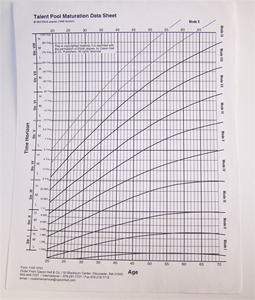“So, let’s call her right now, offer her the position, straight away,” I suggested.
“But, you haven’t even read the profile,” Kristen protested. Even she could see the absurdity of making an offer before proper due diligence.
“I don’t need to read the profile,” I replied, pressing the absurdity.
“But if you don’t read the profile, how can you know if this person will be able to do the job?”
“Excellent question. How can we know if this person will be able to do the job if we don’t have a role description to help us read the profile?”
“Well, we have the job posting.”
“Kristen, I read the job posting. There is more on company benefits than there is on expectations. It appears to me that you are trying to shortcut the work required in this hiring process.”
“It’s not that I don’t want to do the work, I just don’t have the time. I have a lot of other important things I need to be doing,” Kristen insisted. “Writing a role description takes a lot of time, and I am sure HR has one that is pretty close.”
“It’s not that you don’t have the time. You have as much time as you need. It’s just not a high enough priority.”
